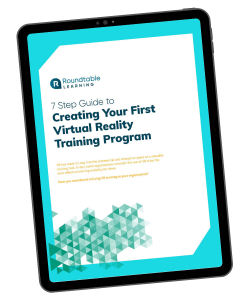We originally titled this post, “how to get the most out of your SMEs”, but quickly realized that in a “how to” blog post about subject matter experts and their role in training, the first step should be understanding your experts’ value. This shifts the focus from “how can I get the best information OUT of my SME” to “how can I support my SME and transfer her knowledge to a group of people”?
According to Training Industry, a Subject Matter Expert, also referred to as SME, is “a person who has special skills or knowledge on a particular job or topic. SMEs are highly accessed by instructional designers to extract intelligence when developing courseware and learning programs. SMEs are frequently called upon to serve as guest lecturers or instructors for training.”
We work with SMEs every day to create custom learning courses for clients. The gathering of information from an SME is one of the most important steps in a project. We know that the course, whether eLearning or ILT, will succeed only if the information we gather, transcribe, and deliver, comes from an SME.
But rather than viewing SMEs as simply a resource, we view them as people who have mastered their craft. They deserve respect and inclusion in the conversion of their ideas to training modules. Here are a few ideas for supporting your SMEs as they help you create content.
1. Understand their Value
Part of recognizing your SME’s value is to acknowledge that without them, your new learning module or program could never exist. Treat your SME as a person with a unique perspective rather than a resource in your tool kit. Get to know her by asking how long she’s been with the company and how she became so knowledgeable about her line of work. Chances are, if she’s an expert, she’s put in years of curiosity and discovery to become passionate about her topic. Lean into this passion and try to translate it into the development of your training.
2. Treat Her as a Part of the Team
Mentally promote your SME to a member of your learning and development team. If you believe and treat your content expert the same way you would your graphic designers and software engineers who are working on your learning program, you’ll create mutual respect and communication among everyone who has a hand in the project.
Resist the idea that you should press her for information and then run with the project script. Your SME has taught or shared this information in 1:1 scenarios and meetings hundreds of times. She likely has great ideas for message delivery and knows what sticks with learners. Invite your SME to project planning and development meetings and keep her in the loop with regular communications about the status of the learning program.
3. Consider your Delivery
How are you delivering the content? If it’s instructor-led training, ask your SME if she’d be willing to facilitate. If it’s not her thing or if she doesn’t have time, ask if she can teach a sample course or mini class to you and your team. Hearing how she presents the information can give you ideas for the ILT course.
If it’s eLearning, are you able to capture video of your SME within the course? Can you work with your SME to create job aids and other resources to support the eLearning?
4. Give them your Best
Though this may seem obvious, your SMEs deserve your best work. If they’re as passionate about their subject as you are about training, they’ll want to make sure you get every detail correct. As Chuck Hodell said in SMEs from the Ground Up, “They have also proved to be my biggest challenge, as their level of achievement and knowledge demand my best, and anything less is obvious to all involved. Through it all, you quickly learn that SMEs are no different from you. As a professional, you have certain expectations and admire certain qualities in others you work with. So it is with content experts, and so it has been for generations of trainers.”
5. Share Feedback
Your relationship with the SME should continue long after you launch the training module. If the situation calls for it, share any areas where learners are still struggling after completing the training. Your SME may have a fix or more information that could help to explain a product or process.
The SME will also appreciate positive feedback. Be sure to thank your SME for her contributions to the module and share positive program results.








